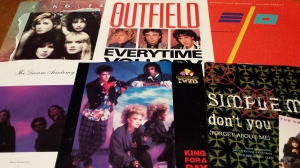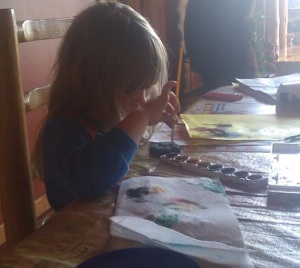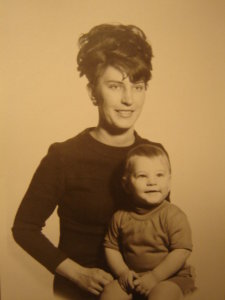It seems there is never enough time for anything these days. There are so many tasks we need to get done, so many things we need to do in order to maintain some sort of pace in order to avoid getting buried by life. But, this leaves little time for contemplation. There’s just no time to think. The kind of thinking where you can get rid of distractions and do away with that little voice in your head reminding you of everything that needs to get done.
When I was a kid, and I would include my years in college, I had time to think and talk about stuff with my friends; important stuff, meaningful stuff. We would discuss life’s big questions – what do we want to do when we grow up?, who is up there in space looking back down at us?, why can’t people get along?, what are the best albums ever made?, what makes great artists so good?, how can we make the world a better place, do you think she likes me?
Even with classes and homework there was plenty of free time. And back then I didn’t waste it on TV. I watched Monty Python and the Packers games with my friends, but not much else. There also wasn’t the distraction of social media.
There are ways to get back our time. Instead of sitting in front of the TV all night and making status updates I’ve come up with some alternatives. All of these ideas I did at some point years ago. I thought if it worked so successfully back then why not go back to basics.
Here are 15 ideas on finding time to think:
Playing catch: There’s something relaxing about throwing a baseball around. Once you get into a rhythm it can be a kind of meditation.
Fishing: There’s nothing better to slow things down. It’s just you, a friend or two, a fishing pole, and the water. Most times I never even caught fish, but the conversations were great.
Riding a bike: Good exercise and you get to see things from a different perspective. As a kid I biked everywhere. It’s the only way I got anywhere sometimes. The sound of the rubber on the road can be hypnotizing.
Going for a walk: More good exercise. I don’t walk as much as I used to. In college it was the only mode of transportation I had. It makes your senses perk up.
Shooting hoops: More good exercise that forces you to concentrate and think about your shot. It’s good for focus.
Exploring/hiking: Is there anything better than getting away from it all and communing with nature? Listening to the wind blow through the trees or birds singing is calming. Add the sound of water running over rocks or a waterfall and you’ve got yourself the perfect place to stop and take a meditation break.
Building models: I loved to build model tanks and airplanes. It takes focus and discipline. When you start, it sometimes feels like it’s an impossible task because there’s so many pieces and it’s going to take forever to complete it. You can’t rush through it and it’s a good way to slow things down.
Drawing: I always loved drawing, like most kids. I took drawing and painting in college and it opened my eyes to look at things in a different way. Take an art class – it’ll get you thinking with a different part of your brain.
Looking out the window: I don’t know if anything beats daydreaming. There’s so much going on outside that you can’t help but reflect on what’s going on inside. Clouds, trees, insects, animals, and people can trigger so many thoughts.
Staring at the stars: This gets you thinking about life’s big questions. You can’t help it. It puts life into perspective looking up at the universe and looking at light that’s just getting here that might be hundreds of thousands, if not millions, of years old. You realize you are a speck yet full of possibilities.
Gardening/yard work: Getting your hands dirty reconnects you to the earth. It’s as if a chisel cracks away the shell of modern society and you and mother nature are reunited.
Planting a tree: There’s something sacred about planting a tree. Maybe because it’s going to be there for years; possibly longer than we are. It’s majestic, mighty, and unwavering.
Listening to music: I love this one. I get lost in music a lot. It’s where I go to feel like I’m alive. Music stimulates the creative side of my brain.
Road trips: This is where you can really get to know someone and know yourself a little bit better. It’s a great way to strip away the layers and be honest. It might be because you need to travel light and it gets you back to the essentials – food, shelter, sleep, and companionship.
Reading: Pick something that makes you ponder life like poetry, philosophy, mythology, or some sacred text (whatever that means to you). It elevates your thoughts.
I think this list gives us a way to get unstuck and think our way into a more positive existence. If we believe things will never change, we’re trapped. We need time to think and re-group. School has semester breaks, in football you have halftime; take time for yourself to re-think your game plan.
When do you find time for yourself? How are you able to think clearly with distractions? What are your results, or what do you hope the results will be?










Follow Me!